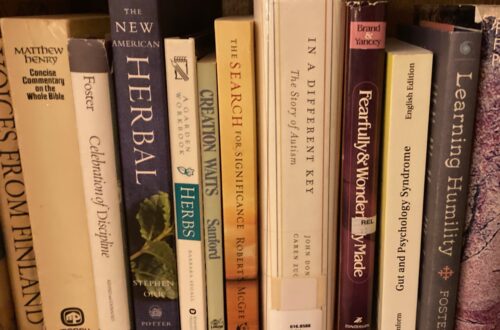Recently I completed reading books about two women that demonstrated different kinds of passion. I have read the Autobiography of Margaret Sanger, followed by A Passion for the Impossible: The Life of Lilias Trotter. The lives of these two women had some similarities and some great contrasts.
Both women came from large families, though Lilias Trotter (1853–1928) had more nurture and resources as a child, growing up in England. Margaret Sanger was born in New York and lived her later years in Arizona (1879–1966). Each eventually became involved with social causes.
Lilias attended Christian conferences, taught a Bible Class at the Welbeck Street Institue (which offered a hostel for young women), and opened her own home to provide social hours for working women.
Margaret Sanger was one of eleven children and when her mother died at the age of 48 she had to take on many responsibilities. Eventually she left home, went through nurses’ training and did home visits for maternity care. She saw difficult situations that poor women faced.
As Lilia continued her outreach to young women she was also developing her skill as an artist. She was invited to spend time polishing her gift under the guidance of John Ruskin.
Margaret left nursing, married Bill Sanger, an architect and artist. The couple faced challenges—Margaret’s treatment for tuberculosis, the loss of a home to fire. They had three children. When they settled in an apartment they became involved with radical groups. Margaret writes “Our living room became a gathering place where liberals, anarchists, Socialists and I.W.W.’s could meet.”*
Lilias’ passion was to bring the message of the gospel to people by living with them and loving them. Although she was a gifted artist, encouraged by John Ruskin to devote herself to art, she chose to establish a mission in Algiers.
Margaret’s passion was to relieve the suffering of poor women by making birth control available. She left her husband and young children to travel the world, researching the topic of overpopulation. As she pursued contraception she joined forces with people promoting eugenics.
The difference that I see in these two women is this. One was devoted to prayer and loving service; the other was out to solve human problems through her own intellect and effort.
As I consider the initial goal that Margaret Sanger had, I am saddened. Did she improve the status of poor women? Our culture has become dependent on contraceptives. Are marriages more stable? Are women better off?
What was the impact of Lilias Trotter’s work? She wrote about legacy in a book, Parables of the Cross. “The results need not end with our earthly days. Should Jesus tarry our works will follow us . . . God may use, by reason of the wonderful solidarity of His Church, the things that He has wrought in us, for the blessing of souls unknown to us.”**
Here is the link to an interesting article about the focus in Lilias’ life (written by the author of the biography).
*The Autobiography of Margaret Sanger, Dover Publications, Inc. : Mineola, New York. 1971. p. 70
**Miriam Huffman Rockness, A Passion for the Impossible: The Life of Lilias Trotter, Discovery House Publishers: Grand Rapids, Michigan, 2003. p. 325.




This is a fascinating study in contrasts! Thanks for sharing this post at Booknificent Thursday on Mommynificent.com this week!
Tina
Carol, I really enjoyed reading the contrasts of these two women. I’m sure Lilias heard “well done,” from Jesus and will continue to enjoy the reward of work done empowered by the Holy Spirit.
It was very interesting to read your thoughts on both women. I’m about halfway through the Lilias Trotter bio. The contrast is striking – I echo Leslie’s thoughts. Carol in Oz.
Carol, thanks for visiting. Enjoy the book. I am looking forward to seeing the film about Lilias, Many Beautiful Things. Have a blessed weekend!
What an interesting contrast! Choosing LIFE is so important for the Christian. I wonder what would have happened in Sanger’s life if she had surrounded herself with friends devoted to God’s life-giving Word instead of radicals glorifying self.
Leslie, you have touched on an excellent point. The relationships in each woman’s life had an impact. We need the Christian community! Thanks for visiting. Have a blessed week.